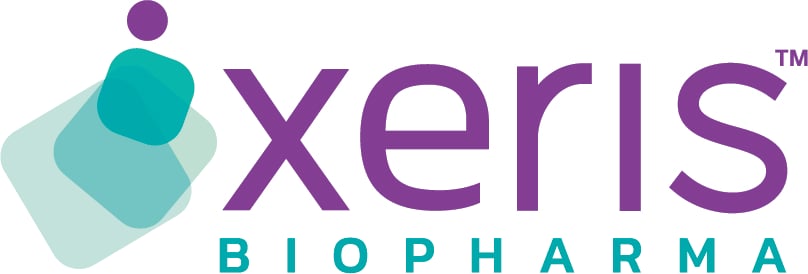An Endocrine News roundup of the week’s pharmaceutical news, breakthroughs, and general information. *
Xerix Announces Results of Once-Weekly Subcutaneous Hypothyroidism Therapy
On May 30, Xeris Biopharma Holdings, Inc., announced topline results from its recently completed Phase 2 multi-center, open label, study of XP-8121 for the treatment of adults with hypothyroidism.
XP-8121 employs the Company’s XeriSol™ formulation technology to enable a novel once-weekly subcutaneous (SC) injection of levothyroxine. This novel formulation significantly increases the bioavailability of levothyroxine reducing overall drug exposure and enabling a dosing regimen with the potential to mitigate the many challenges associated with achieving and maintaining a normal level of thyroid stimulating hormone (TSH) with daily oral formulations of levothyroxine.

The Phase 2 study (NCT05823012) was a non-randomized, open-label, single arm, self-controlled study of XP-8121 (levothyroxine sodium) to determine a target dose conversion factor from stably dosed oral levothyroxine to XP-8121 (levothyroxine sodium) in 46 patients with hypothyroidism and to assess the safety and tolerability of XP-8121 (levothyroxine sodium) after once-weekly SC injections. The Phase 2 study leveraged the bioavailability observations of a previous Phase 1 study in which PK analysis showed that participants could achieve comparable systemic exposure with XP-8121 at only 57% of a weekly oral dose. The Phase 2 study included the following periods: Screening, Titration Period (2 to 8 weeks), and Maintenance Period (4 weeks). Participants entered the study on a stable oral dose (≥ 3 months) with normal TSH and free T4 laboratory values.
Participants were receiving a daily oral levothyroxine dose of 83.7 ± 31.14 mcg (mean ± SD) at study entry. To ensure the safety of study participants, once-weekly SC injection of XP-8121 was initiated at 2X their daily dose and titrated every 2 weeks to a target of 4X their daily dose. Participants completing the Maintenance Period were receiving a weekly XP-8121 dose of 324.4 ± 125.59 mcg. The geometric mean ratio of the once-weekly dose of XP-8121 to the daily dose levothyroxine (aka dose conversion factor) was 4.02 [90% CI 3.79, 4.27]. A total of 30 participants (65.2%) experienced at least 1 TEAE (Treatment Emergent Adverse Event) with most rated mild (87%) and moderate (13%) in severity. The most frequent (> 2 participants) TEAE included fatigue (21.7%), injection site pain (10.9%), headache (8.7%) and urinary tract infection (6.5%). No deaths or other serious adverse events (SAEs) were reported. Injection site tolerability was assessed with every SC administration of XP-8121 (> 450 injections). There were very few reports of discomfort (18%; mostly mild intensity), erythema (7%; Draize scale) or edema (1%; Draize scale). No participant discontinued from the study due to an injection site reaction. The Treatment Satisfaction Questionnaire for Medication (TSQM-9) was administered to assess patient satisfaction. XP-8121 scored consistently higher in all three domains (effectiveness, convenience, and global satisfaction) compared to oral levothyroxine. At the conclusion of the study, participants were asked to rate preference for once-weekly XP-8121. A majority (72%) indicated a strong preference for the SC route of administration based on categorical attributes of convenience (60.6%), ease of administration (45.5%), frequency of administration (54.5%), level of compliance (27.3%) and confidence in therapy (36.4%).
“A 2022 study published in the Journal of the Endocrine Society estimated the prevalence of hypothyroidism in the U.S. grew to 11.7% or approximately 30 million adults in 2019. Innumerable reports have been published documenting the various compliance and absorption challenges that can interfere with the bioavailability of oral levothyroxine. Interestingly, in our own Phase 2 study, 40% of patients considered stable at the time of screening were found to have their TSH or T4 outside of normal range. We believe our once-weekly SC injection can enable control in patients who struggle with oral preparations for a variety of reasons,” said Paul R. Edick, Xeris’ Chairman and CEO.
“We are excited by the initial top line results of our Phase 2 dose-finding study of XP-8121. These results are further evidence of our target dose conversion and consistent with the estimates generated from the prior Phase 1 study in healthy volunteers,” said Kenneth E. Johnson, PharmD, Xeris’ senior vice president, Global Development and Medical Affairs. “Given the known challenges of oral bioavailability of levothyroxine and further by the high rate of screen failures observed in our phase 2 study, we believe that XP-8121 could fill a substantial unmet medical need. We look forward to meeting with the FDA later this year and expect to present complete study results at upcoming medical meetings as well as submission to peer-reviewed medical journals.”
*Inclusion in Pharma Fridays does not suggest an endorsement by Endocrine News or the Endocrine Society.

